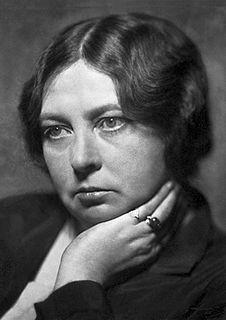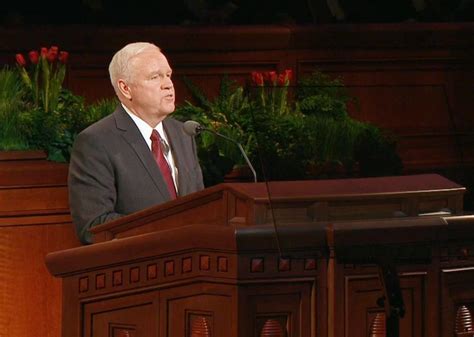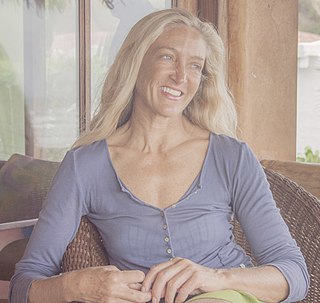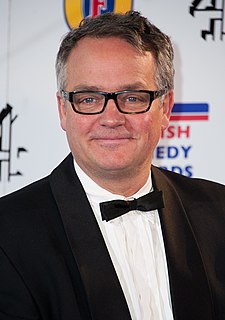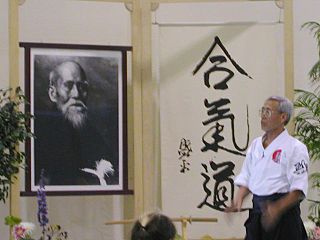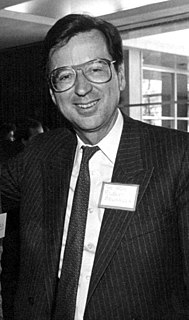A Quote by Leo Tolstoy
But that had been grief--this was joy. Yet that grief and this joy were alike outside all the ordinary conditions of life; they were loopholes, as it were, in that ordinary life through which there came glimpses of something sublime. And in the contemplation of this sublime something the soul was exalted to inconceivable heights of which it had before had no conception, while reason lagged behind, unable to keep up with it.
Related Quotes
Let the tears which fell, and the broken words which were exchanged in the long close embrace between the orphans, be sacred. A father, sister, and mother, were gained, and lost, in that one moment. Joy and grief were mingled in the cup; but there were no bitter tears: for even grief arose so softened, and clothed in such sweet and tender recollections, that it became a solemn pleasure, and lost all character of pain.
The extraordinary woman depends on the ordinary woman. It is only when we know what were the conditions of the average woman's life - the number of children, whether she had money of her own, if she had a room to herself, whether she had help bringing up her family, if she had servants, whether part of the housework was her task - it is only when we can measure the way of life and experience made possible to the ordinary woman that we can account for the success or failure of the extraordinary woman as a writer.
On the earth, satellite of a star speeding through space, living things had arisen under the influence of conditions which were part of the planet's history; and as there had been a beginning of life upon it, so, under the influence of other conditions, there would be an end: man, no more significant than other forms of life, had come not as the climax of creation but as a physical reaction to the environment.
Her heart felt as if it were breaking in her breast, bleeding and bleeding, young and fierce. From grief over the warm and ardent love which she had lost and still secretly mourned; from anguished joy over the pale, luminous love which drew her to the farthest boundaries of life on this earth. Through the great darkness that would come, she saw the gleam of another, gentler sun, and she sensed the fragrance of the herbs in the garden at world's end.
These early Saints were indeed homeless, but they were not hopeless. Their hearts were broken, but their spirits were strong. They had learned a profound and important lesson. They had learned that hope, with its attendant blessings of peace and joy, does not depend upon circumstance. They had discovered that the true source of hope is faith—faith in the Lord Jesus Christ and in His infinite Atonement, the one sure foundation upon which to build our lives.
I look to everyday magic in art to remember how to live: how to estrange and vivify ordinary objects and beings. So little, really, is ordinary, but to remember this I need the brain chemical of painting and film and reading I had a thrummy doomed oracular feeling when I wrote blackened baby teeth into my little blind boy story: I saw teeth and in an instant they were becoming something else. They were buckshot. They were food. They were tiny flightless corvids.
There was a reason these boys were still alive, though. Something made them stronger than the other kids, the ones who had died in the early days, who had simply lain down and given up, unable to cope with the terrible things that were happening in the world. These boys were survivors. The will to live was stronger than any other feelings.
If you were all alone in the universe with no one to talk to, no one with which to share the beauty of the stars, to laugh with, to touch, what would be your purpose in life? It is other life; it is love, which gives your life meaning. This is harmony. We must discover the joy of each other, the joy of challenge, the joy of growth.
Man is more himself, man is more manlike, when Joy is the fundamental thing in him, and Grief the superficial. Melancholy should be an innocent interlude, a tender and fugitive state of mind; Praise should be the permanent pulsation of the soul. Pessimism is at best an emotional half-holiday; Joy is the uproarious labor by which all things live? Christianity satisfies suddenly and perfectly man's ancestral instinct for being the right way up; satisfies it supremely in this, that by its creed Joy becomes something gigantic, and Sadness something special and small.
I feel for young people today. When I came out of law school, yes, we were broke, we had kids, we had problems. But it was straightforward. I didn't have to say, "My God, I am $80,000 in debt, I have to get a job, I have to pay it back, my life is ruined otherwise." We were able to go forward and work toward building something new, and that's what we did. Today many lawyers are unable to feel free to be advocates.







